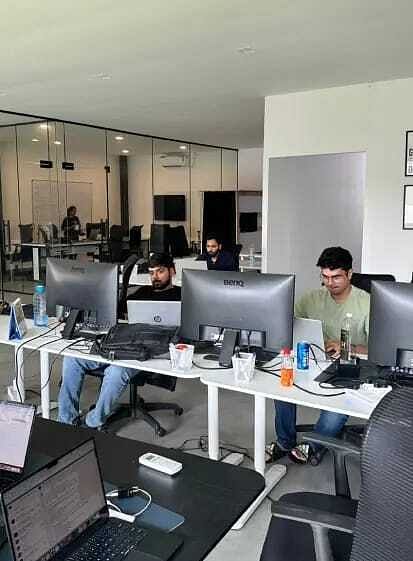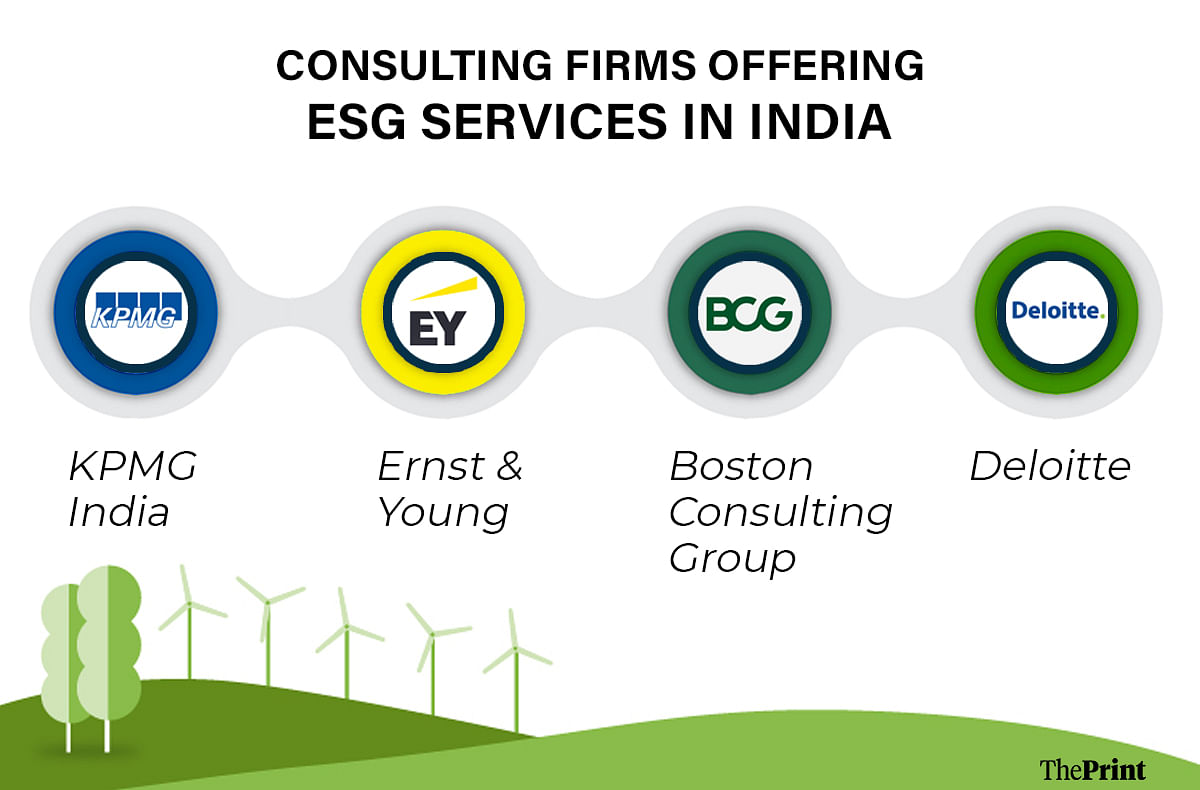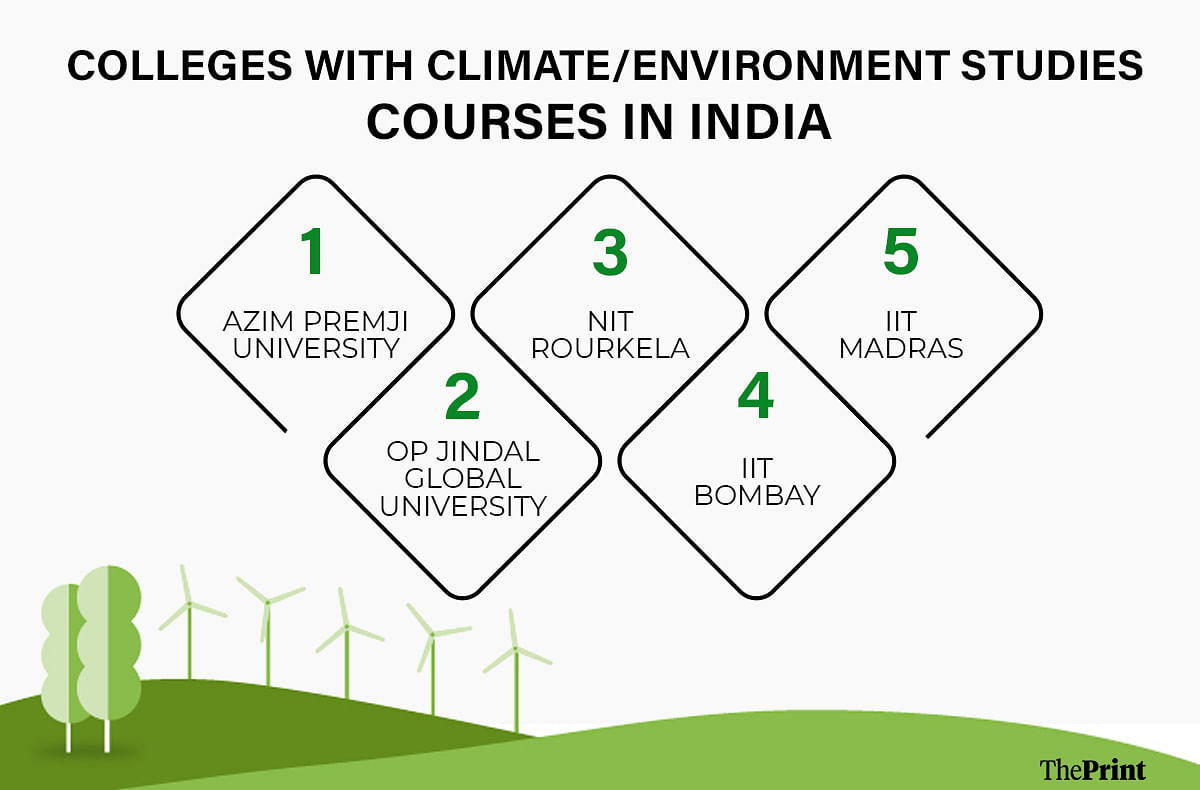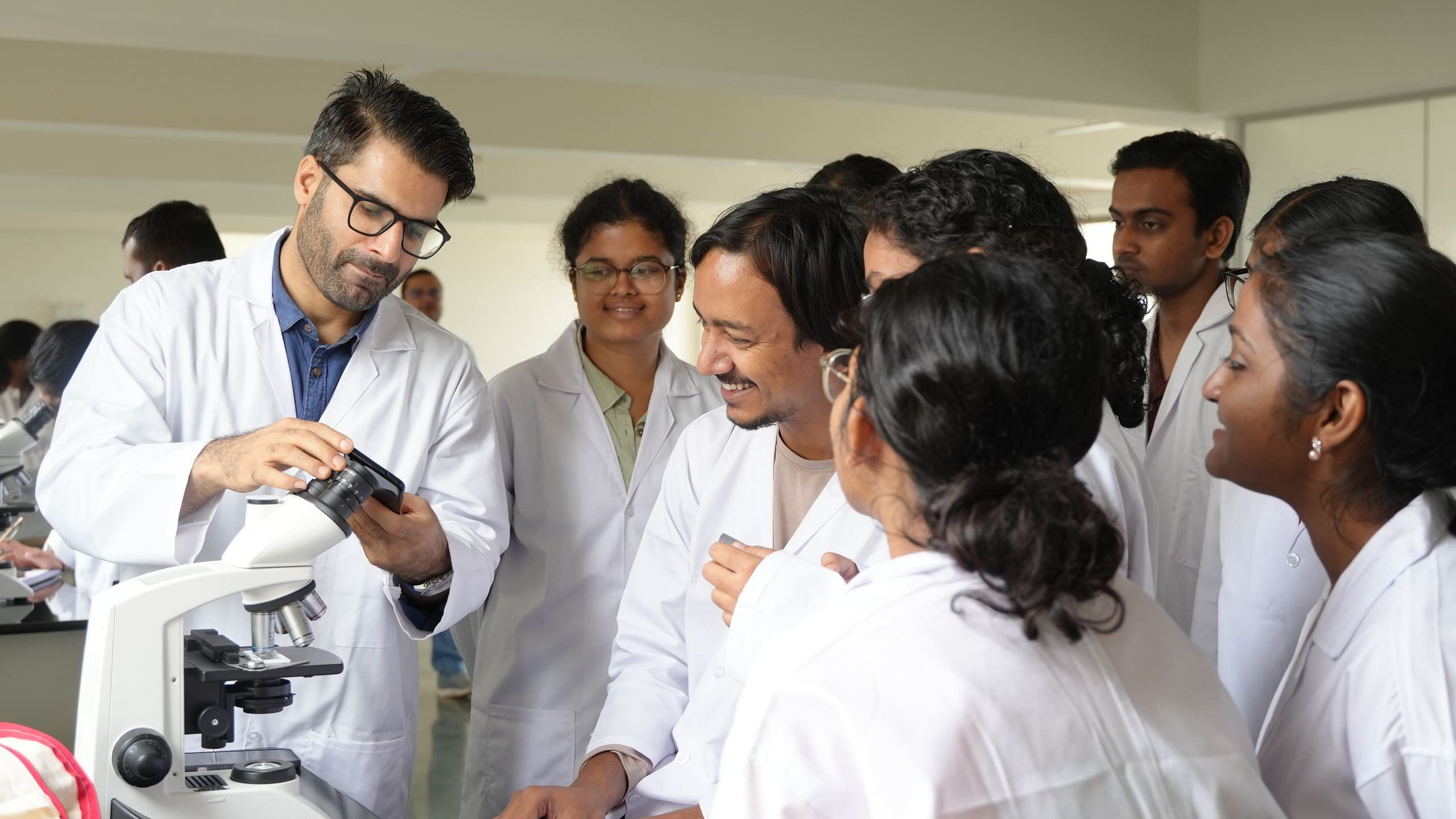New Delhi: Shiny, brand-new red benches that popped up one day in Delhi University’s North Campus led 20-year-old Sneha Chopra to a career in environment. Initially thinking they were a PR stunt by a brand, Chopra, then a zoology student at Khalsa College, ignored them. But then she saw that these benches, installed by Zomato, were made of 100 per cent recycled plastic waste as part of a sustainability campaign.
“It was my first time seeing a company take concrete action for the environment, and I realised there’s so much scope for sustainable action in the corporate world,” said Chopra, who is now pursuing a master’s degree in Environmental Studies and Resource Management from The Energy and Resources Institute (TERI) in Delhi. She wants to graduate and work as a sustainability manager for a big corporation like Zomato, helping reduce their carbon footprint.
Chopra is one of the many new ‘climate aspirants’ in India – she wants a career working in the climate action sector, and the avenues to choose from seem endless. LinkedIn’s Jobs on the Rise 2024 report named ‘Sustainability Manager’ as one of the top 25 most sought-after roles in India. Climate change has permeated every sector and industry, from environmental, social, and governance (ESG) consulting and environment law to climate agriculture science and renewable energy policy. Colleges are perking up at the opportunity, introducing new courses on climate sciences. Companies, on the other hand, are offering workshops on sustainability to their employees.
“Climate is the economy now”
– Arunabha Ghosh, CEO, CEEW
According to industry experts, this growth is partly motivated by increased student interest in issues of climate change and mitigation. Others point out that the interdisciplinary nature of climate jobs makes them attractive to a wider audience. However, most industry insiders agree on one thing – the climate careers trajectory will only grow upwards.
“Climate is the economy now,” said Arunabha Ghosh, CEO of the Council on Energy, Environment and Water (CEEW). “It is not just some sectors or industries that need to adapt to the climate crisis, it is the whole world that needs to incorporate climate concerns in its overall thinking.”
Sustainability consulting taking off
Karantaj Singh, the 25-year-old co-founder of a Bengaluru-based ESG technology firm called Breathe ESG, has been passionate about sustainability since “before it became sexy”.
Singh was still in high school when a chance visit to the United Nations Headquarters in New York sparked his interest in the climate action sector. The visit was organised by the World Federation of United Nations Associations (WFUNA) in 2015, the year they announced their Sustainable Development Goals (SDGs). Now, Singh has been in the sustainability space for almost a decade.
Upon his return, he co-founded The Deepam Initiative in Bengaluru to provide climate-resilient infrastructure to villages in Karnataka. Right after college, when he joined KPMG as a strategy consultant, Singh realised the real potential of sustainability in even a mainstream profession like consulting. So he left the growing ESG advisory team at KPMG to start a firm focused exclusively on helping companies streamline their environment and sustainability management processes.

“Being sustainable is no longer a choice for companies – investors, customers, and international regulations all demand that sustainability should be the core function of any company,” explained Singh.
Barely two years old, Singh’s Breathe ESG already has a number of clients in sectors such as real estate, infrastructure, manufacturing and even retail. They use the firm’s solutions to manage, calculate and report companies’ carbon emissions and sustainability practices. Indian regulators such as the Securities and Exchange Board of India (SEBI) mandate the top 1,000 companies in India to report their ESG practices, but more and more companies are voluntarily declaring their emissions in a bid to be more sustainable. This is the market that Singh, his co-founder Shaayak Chatterjee, and their team of 15 employees from engineering, business, history, environment science, and marketing backgrounds have tapped into.
KPMG, Singh’s former employer and one of the world’s biggest consulting firms, also leads in environment and sustainability services in India. It offers a range of ESG solutions to its clients, including ESG reporting, climate risk modelling, and sustainable finance. Namrata Rana, National Head for ESG, KPMG India, spoke about how the need for ESG consulting services arises because of the way climate change has permeated every company.
“The world has realised that unless they are aligned to the natural ecosystem and its changes, the entire business model that the world runs on is under threat,” said Rana, explaining how the real-world impact of climate change and extreme weather is much stronger for companies than regulatory frameworks demanding sustainability measures. KPMG India’s ESG vertical started just before Covid-19 with about 35-40 people. Now, it has over 200 employees across the board. Rana also added that sustainability is a company-wide watermark for KPMG – every practice and service in the organisation embeds ESG.

Viral Thakker, Partner, Sustainability & Climate Leader, Deloitte South Asia, echoed Rana’s views on how clients are responding to more “nature-based solutions” in ESG consulting. He explained that the number of people and companies working in ESG indicates a “profound shift” in how companies are looking at climate change and reacting to it.
“The job market goes through waves – a few years ago, data science was all the rage, then it was product management. Now, India’s going through the climate wave,” said Shrey Agarwal, founder and CEO of Alt Carbon, a carbon dioxide removal (CDR) company based in Darjeeling, West Bengal.
Agarwal’s point also comes across acutely in industry reports – the transition to climate-centric jobs is being acknowledged by the entire job ecosystem. According to the International Labour Organization’s ‘Assessment of India’s Green Jobs and Just Transition Policy Readiness’ report 2023, around 54 million green jobs will be created in the country between 2021 to 2030. Other organisations such as the Skill Council for Green Jobs (SCGJ) peg the number at 30-35 million new green jobs by 2047. However, as the ILO’s report states, and the industry agrees, “green jobs are a priority in India.”
In terms of the economic impact of green jobs, the World Economic Forum, in a report titled ‘Mission 2070: A Green New Deal for a Net Zero India’, estimated that the country could create a $15 trillion economic opportunity through its green transition by 2070. Out of this, the report said, $1 trillion worth of opportunities could be created just by the end of this decade.
“Climate is where the money is,” said Amlan Bibhudutta, a 24-year-old research analyst at CEEW. With a degree in economics and a postgraduate diploma in data and policy, Bibhudutta initially wanted to get a postgraduate degree in economics and move abroad. But a year into researching energy transition pathways at CEEW, he realised the scope in the climate space.
“The job market goes through waves – a few years ago, data science was all the rage, then it was product management. Now, India’s going through the climate wave”
– Shrey Agarwal, founder and CEO, Alt Carbon
“It isn’t just energy or sustainability. There is climate finance, there’s pollution, afforestation – you name it, and there are people working on it. The thing with climate change as opposed to other social impact sectors like poverty alleviation is that it affects everyone, even financial institutions and big industries. So they’re all the more interested in mitigating it,” he explained. In three years, Amlan was promoted from a consultant to a full-time analyst with CEEW, where he is part of the climate finance team.
The journey of CEEW itself exhibits the steep rise in climate careers in India. From less than 80 employees in 2019 to around 330 employees, including consultants and interns, in 2024, the think tank has become one of the biggest in India. Its focus on environment, renewable energy, and water has made even the government take notice, and many verticals of the think tank are working with state and central government departments to help design sustainable policies.
“The rise in climate jobs is entirely demand-driven,” said Reman Singh, the head of human resources at CEEW. “The demand right now far outstrips the supply in this sector,” she added.
Also read: Govt schoolteachers are drowning. Classwork, homework, more work
Climate and environment education
For Shubha V, an alumna of IIM Indore, working in Ernst & Young’s climate change and sustainability services vertical was ideal for starting a career in climate-focused consulting. When she was sitting for her placements at IIM in 2022 during her five-year Integrated Programme in Management, there was a tough competition for this role – almost as much as there is for mainstream consulting roles in the ‘Big Four’. Only nine people, including Shubha, got the job that year from her college.
“It was a prestigious job, and the interview process was equally daunting. There were three rounds including a written, an HR interview, and a final interview,” she said.
It was during the final interview process, when she met her future bosses, that Shubha was quizzed on her ability to serve in a sustainability role.
“I realised it wasn’t just generic MBA questions and case studies – they were more interested in my understanding of sustainability, and how I had used my skills in the climate sector before,” she recalled.
“They were trying to gauge if my long-term goal aligned with working in climate change.”
Shrey Agarwal of Alt Carbon too talked about the freshers they usually hire at Alt Carbon. He explained that most of the students from BITS and IITs, and even local engineering colleges in Darjeeling and Sikkim, where their facility is based, are very well-versed with the hardcore STEM skills required for climate tech companies. The problem arises in knowing how to apply these skills to the climate sector.
“Many engineers and scientists know about climate change but don’t think about how they can apply their geoengineering and research skills to actually solve the issue,” said Agarwal.
“Climate deep-tech can significantly change the world, but it’s an underrated industry in India right now, and colleges can definitely help facilitate its growth,” he added.
Some colleges in India are actively working to facilitate this growth in climate awareness.
From established IITs and NITs to newer private universities such as OP Jindal Global University and Ashoka University, there are courses, departments, and degrees dedicated to environment, climate, and energy studies.
Azim Premji University’s Centre for Climate Change and Sustainability already has over 80 students enrolled in their BSc in Environmental Science and Sustainability programme that was introduced only two years ago. The department, which was launched in 2019, offers training workshops and short courses like environment data analysis and environment reporting for mid-career professionals. Due to growing demand, the department has also decided to start a master’s in Environment Change and Sustainability programme this year.

“We don’t have a degree requirement for our BSc or MSc courses – you can be from any background. The nature of our course is interdisciplinary, just like climate change,” explained Harini Nagendra, the director of the centre. Owing to demand, Nagendra also started a weekly webinar on job opportunities in the sustainability sector this September, and the first episode garnered more than 1,700 viewers.
While Azim Premji and OP Jindal have both introduced specific environmental programmes fairly recently, other prominent institutions such as IIT Bombay, NIT Rourkela, and IIT Madras have been offering courses in environmental engineering, atmospheric sciences, and climate sciences for far longer. NIT Rourkela, the first NIT in the country to offer master’s courses in atmospheric sciences in the year 2015, currently has 108 postgraduate students and 48 PhD students in the department, all pursuing varying levels of research in the field of climate change action. Similarly, IIT Bombay’s Centre for Climate Studies, which started with around four PhD students in 2012, has over 70 PhD students enrolled now.

“Universities and education spaces are at the forefront of climate science – they develop models to predict climate trends, they analyse data for extreme weather events, and recommend policy measures for climate mitigation,” said Nagaraju Chilukoti, an assistant professor in the Department of Earth & Atmospheric Sciences at NIT Rourkela, Odisha.
Also read: Govt jobs are changing. PSU bank staff live in pressure cooker, 9-5 replaced by 24×7
Interdisciplinary nature of climate careers
At the TERI booth at the International Solar Festival in Delhi, 27-year-old research associate Hemakshi Malik animatedly explained her work in renewable energy, focusing on solar potential in agriculture in the states of Haryana and Uttar Pradesh. But five years ago, she was studying physical science in Delhi University, hoping to work in quantum computing.
“My journey into energy transition and climate change was quite accidental, but once I was here, I couldn’t leave,” said Malik, emphasising the importance of the work she does at TERI.
After an internship with GIZ India, which provides services for sustainable development, in 2023, where she worked on the potential estimation of agrivoltaics in different Indian states through remote sensing and Geographic Information Systems (GIS), Malik understood the impact of technology on climate change policy. She has now completed a year at TERI as a research associate; her favourite part is that she gets to interact not just with the private sector but also with government stakeholders and communities to understand the barriers and enablers for the proliferation of renewable energy. This multisectoral extent of her job also involves an interdisciplinary cadre of researchers.
“I come from physics, while my colleagues are economists, doctors, social scientists, engineers,” Malik laughed. “Yet here we are all working together because all our skills are equally important in something as all-encompassing as climate action.”
Environment science might have been a niche subject during my parents’ time, but we’re a generation that has grown up with global warming.
– Ireena Singh, an undergraduate student of environment studies at OP Jindal Global University
CEEW’s Reman Singh made similar arguments from the employer side of the equation. Their organisation actively employs people from political science, international relations, anthropology, and physical sciences to work on climate change-related issues. Their main ask is – can this individual understand the different facets of this planetary problem? Can they be a force for public good in the realm of climate change?
In today’s generation, it is not difficult to find such individuals. Ireena Singh, an undergraduate student of environment studies at OP Jindal Global University, said that choosing her discipline was never much of a dilemma. She remembers studying about the depleting ozone layer and climate change since she was 10 years old. Shreya Sharma, a graduate in literature from Ashoka University, started pursuing environment as a minor only in her final year but went on to work in an environment advocacy firm because the subject gripped her.
Azim Premji University’s Harini Nagendra also attributed the rising interest in climate careers to the sheer exposure that the younger generation has had to climate change. It is no longer a distant threat, but a very real, in-time experience for most of them. So, added Nagendra, “their passion to work in this field is quite understandable”.
“Environment science might have been a niche subject during my parents’ time, but we’re a generation that has grown up with global warming,” said 20-year-old Ireena, currently in her third year of undergraduate studies and looking for jobs in climate-driven NGOs. “I think it’s surprising for someone my age to not want to work in climate action.”
(Edited by Aamaan Alam Khan)






